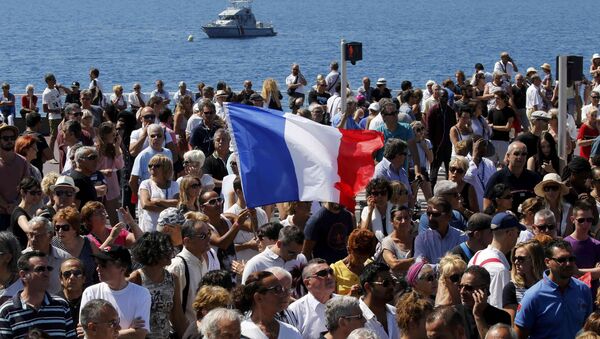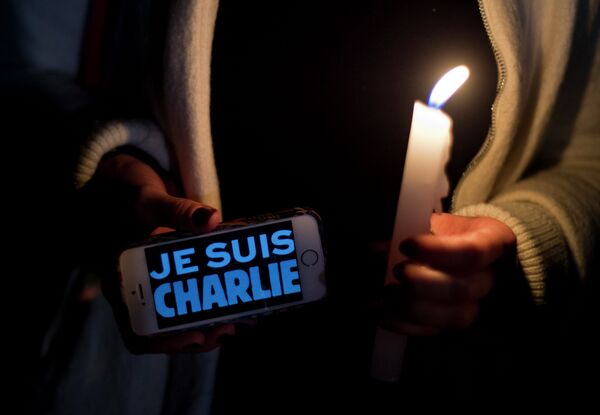It was Bastille Day, a celebration of "liberty, equality and fraternity." But in Nice, it was the day that Mohamed Lahouaiej Bouhlel murdered 84 people and left more than 50 men, women and children critically injured, plunging the country into mourning, once again, and leaving the president no choice but to extend the country's state of emergency.
Wow. The crowd on #Nice Promenade for the minute of silence. pic.twitter.com/1bLQRY1jle
— Agnes Poirier (@AgnesCPoirier) July 18, 2016
A state of emergency was first declared following the terrorist attacks on 13 November 2015, which killed 130 people. It allows the government, security services and police more power to ban organizations and public demonstrations, carry out raids without a warrant and seize digital equipment from anyone whose "behavior can seriously be considered a threat to security and public order."

A new surveillance bill was promptly passed through French parliament following the Charlie Hebdo attack in January 2015, fast-tracked by the state of emergency measures. Privacy campaigners at the time, voiced concerns that the measures could remain permanently in France.
Following the coordinated attacks across Paris in November 2015, the temporary state of emergency was extended again — and again, following the attack in Nice, but does it really protect a nation?
Dr Binoy Kampmark, an expert in international relations, suggests: "Security establishments can never hope to mind read; they can only assume, draw often flawed conclusions, and hope for the best. Such work should be social, political and deeply holistic.
"All too often, it is scatterbrained and erratic. All these point to the failings, rather than the successes, of the state of emergency."
In an interview following the attack in Nice, Professor Anthony Glees, a terrorism expert at the University of Buckingham told Sputnik that President Holland "is in big trouble."
"Holland has failed to deliver security and this is not the first time we have seen vehicles used as weapons," Glees said.
"It was obvious that the lorry was up to no good. It was able to travel for over two kilometers and not be disturbed. This is why terrorism is a threat and it is of utmost importance that a government provides security. And if they do not, they are not competent."
Flowers mark places along the promenade were 84 died in #Nice #France. A pile of trash marks where the attacker died pic.twitter.com/pw1pCgSE65
— Will Ripley (@willripleyCNN) July 18, 2016
Professor Glees does not believe "more surveillance and more monitoring" is the only solution in preventing terrorist attacks.
Dr John Lowe, counterterrorism and international crime and security expert at Liverpool John Moore's University argues:
"If 'lone-wolf', low-tech attackers such as Bouhlel are the sorts of threats they face, the agencies of the state face an almost impossible task even when they've had their powers extended, as they have under the state of emergency."
Writing in "The Conversation," Lowe argues that powers afforded during a state of emergency can be effective, for example, "prior to and during the European football tournament, where liaison between French and Belgium police led to a number of arrests," with the only trouble the tournament faced was caused by football hooligans.
However, Lowe recalls rhetoric familiar to the UK that "the state has to be lucky 100% of the time, whereas the terrorist only has to be lucky once."
"Tragically," Lowe says, "this time, the state was caught out."
The state of emergency measures are proving to be both ineffective — and unpopular.
The survey carried out by the French Institute of Public Opinion (IFOP) for French newspaper, Le Figaro, suggested that only 33 percent of people had confidence in the state.
A sentiment reflected on the streets of Nice, as grief turned to anger, and shouts of "resignation" and "murderers" could be heard coming from the crowds during the memorial for those who died in Nice on Bastille Day 2016.
Extraordinary. French PM and politicians BOOED by memorial crowds here b4 minute's silence. Visceral anger in #Nice pic.twitter.com/uUtHhx052Z
— Julian Druker (@Julian5News) July 18, 2016




